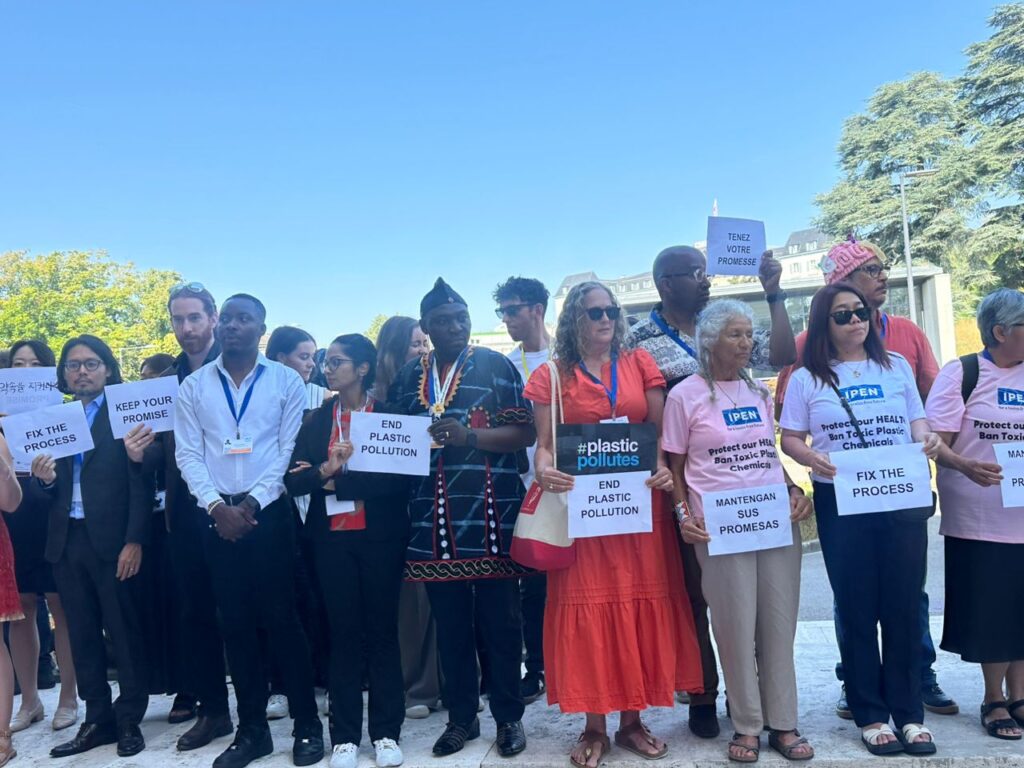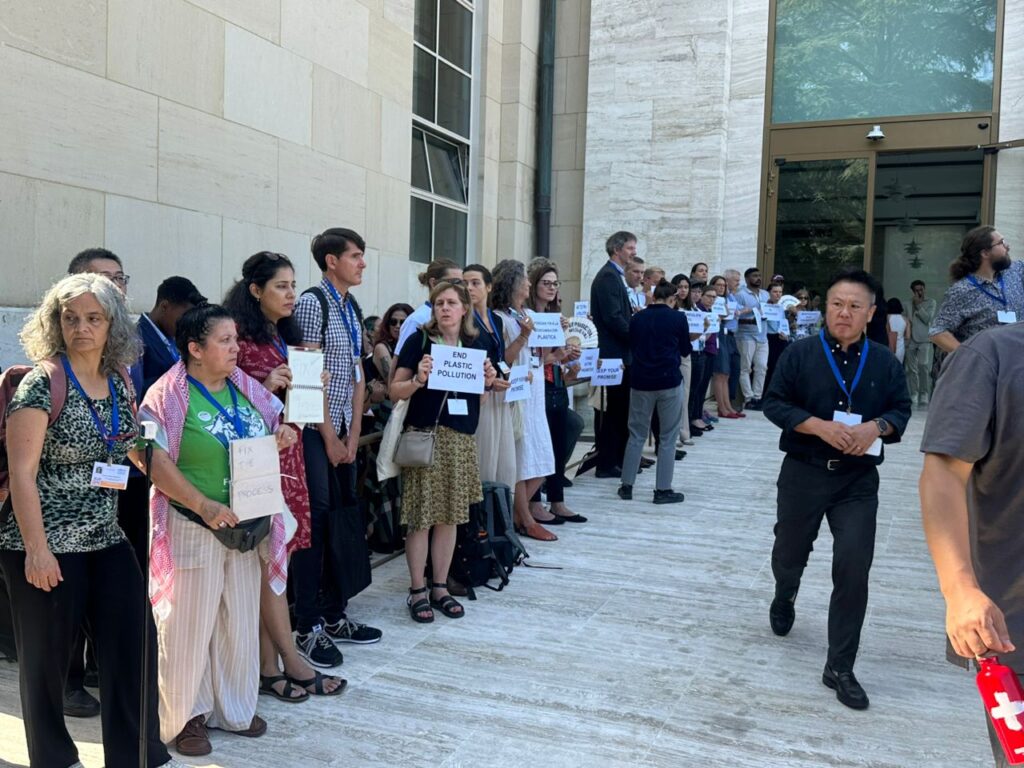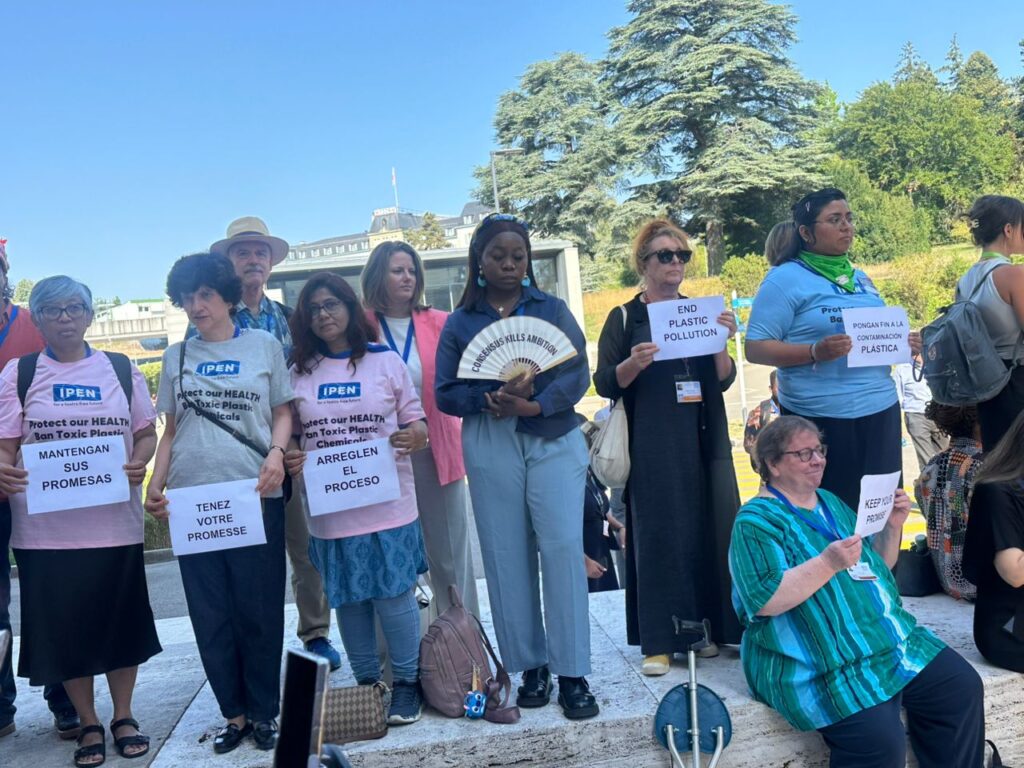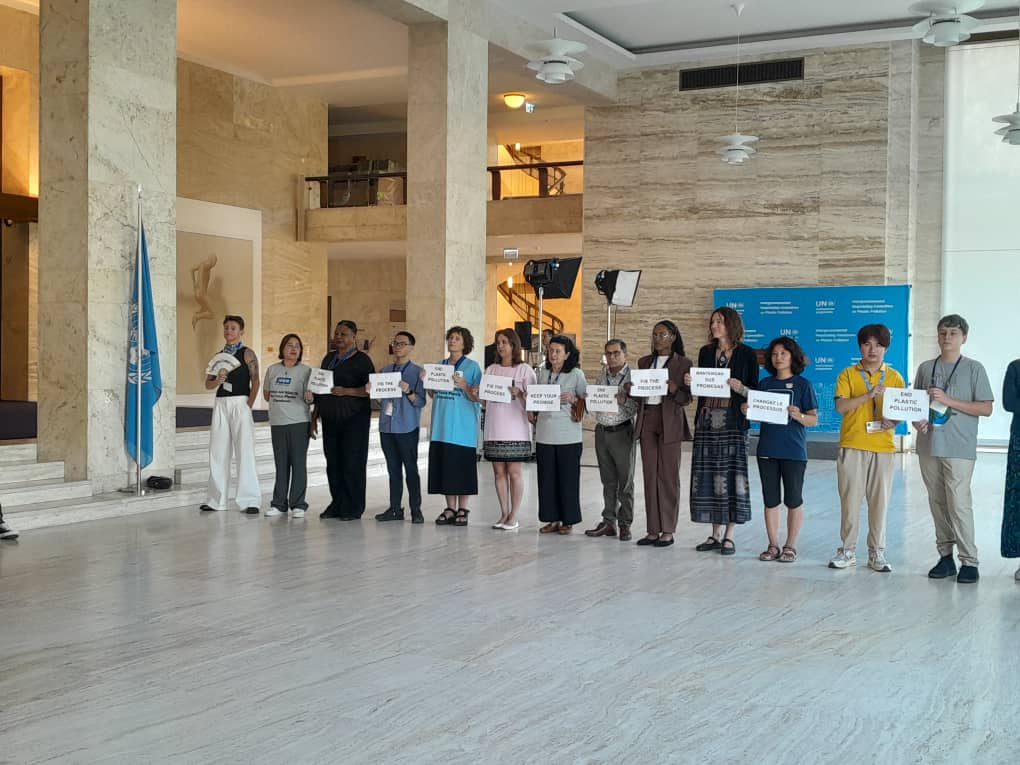By Habitat Reporter
Geneva, Switzerland. As the first week of negotiations on a legally binding global treaty to end plastic pollution comes to a close, African countries have voiced frustration over the slow pace of progress and urged negotiating groups to intensify their efforts.
At the midpoint of the resumed fifth session of the Intergovernmental Negotiating Committee (INC-5.2), delegates warned that time is running out, with no clear path toward an agreement.
Four contact groups are currently working on different sections of the draft treaty, consolidating numerous country proposals before submitting them to the plenary for review.
On Saturday, the contact groups updated the plenary on their progress, with most admitting they had not advanced as far as expected and requesting more time—a development that drew strong reactions from African delegates.
Kenya’s Permanent Representative to the UN Environment Programme (UNEP), Ababu Namwamba, called on negotiators to accelerate their work so that concrete achievements could be made.

“We are not closer to an agreement while plastic pollution is not waiting—it is getting out of control,” Namwamba said.
“With seven billion tons of plastic waste circulating in the environment, and over 430 million tons of plastic products produced each year, often without proper take-back schemes in many countries, the urgency is undeniable.”
Namwamba emphasized that the treaty under negotiation is an environmental pact with the potential to restore ecosystems, protect biodiversity, and reduce risks to human health. He urged member states to deliver a strong treaty within the remaining days, warning that the world cannot afford another delay.
He also backed the African Group’s call for the treaty’s Secretariat to be located at UNEP headquarters in Nairobi, in line with the UN’s “fit for purpose” initiative to bring services closer to affected communities.
Civil society also voiced concern over the slow pace.
Graham Forbes, Head of Delegation for Greenpeace, urged negotiators to take their mandate seriously. “An ineffective treaty is a betrayal that will further burden the Global South while empowering the world’s biggest polluters,” he said.
Henry Msuya, a mechanical engineer at the Tanzania Bureau of Standards, noted that while some articles had seen progress, the most challenging phase—finalizing and “cleaning” the text—was still ahead. “Every country is making contributions, and there is goodwill. But soon we will see where countries are unwilling to compromise.
That will determine the final outcome,” he said. Msuya stressed that for countries like Kenya and its neighbors, the treaty is also about creating a level playing field, ensuring regional cooperation to curb illegal waste movements and dangerous practices such as burning plastics, which release toxic chemicals into the air.
Reasons for the Delay
According to Hamad Tymoor, Compliance Manager at the National Environmental Management Council (NEMC) and a member of Tanzania’s negotiating team, many sections of the text still contain unresolved “brackets.”

“This situation arises from spending too much time on minor issues, with each party pushing for its own interests,” Tymoor explained. “There are times we spend over an hour just discussing whether to use the word may or shall, particularly when countries with high plastic production try to protect their interests.”
Anna Rocha, Executive Director of NipeFagio, suggested changing the negotiation system to a voting-based approach to speed up decision-making.
“The discussion-based system makes the process more difficult because too much time is spent arguing,” she said.
“At the end of the day, the plenary ends up just producing words, and nothing moves forward—while citizens are waiting for a treaty that will help them make developmental progress.”
Rocha added that people expect the treaty to address plastic-related challenges, including preventing African countries from being used as dumping grounds for plastic waste.
Urgent Call from the Chair
INC-5 Chair Luis Vayas directed co-chairs to focus on finalizing the text, resolving differences, and cleaning up the draft. He acknowledged that progress on some articles was minimal and pledged to continue consultations with contact group co-chairs to address these issues.
He stressed that the results so far were insufficient, with contact group reports showing many new brackets and unresolved positions. “There is no more time to continue adding positions already stated,” Vayas warned. “August 14 is not just a deadline—it is the date by which this committee must deliver.”



